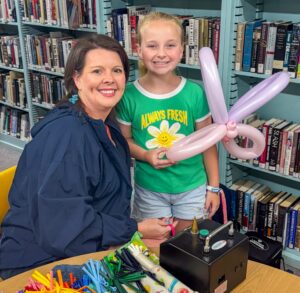Alabama weathering the economic storm better than most, but still at risk
By Staff
Johnny Mack Morrow
Franklin County Times
For our nation, economic uncertainty seems to have become a way of life.
We watched as the federal government took actions to prop up financial institutions and Wall Street, calling the crisis one of the most critical since the great depression.
Historically Alabamians didn't have much use or like for Wall Street.
When the Depression hit, the old joke was that nobody in our state noticed much of a difference, because for so long the big mules had taken our coal, cotton, and labor and gave us what seemed to be so little in return.
Hard times are hard times; it doesn't really matter if someone else is also having them too.
When other regions in the country would experience growth, Alabama often would lag behind and never seem to get its share of progress.
Now, Alabama is much more a part of the national and world economy. What happens in New York or other places has a direct impact on how we live, and how well we prosper. As plans for bailouts and reorganizations top the national news, most of us just want to know how this will affect our family, our community, and our state.
Indications are that we will fare better than many in these uncertain times, but there are significant issues that will have to be addressed.
Alabama was one of only five states in the entire country to see unemployment actually drop last month, according to recently released federal data. While the nation saw its unemployment climb to a five year high of 6.1 percent, Alabama's jobless rate fell to 4.9 percent in August, down from a four year high of 5.1 percent. It is a far cry from our all-time low unemployment last year of 3.6 percent, but federal officials say that the state's job market remains one of the strongest in the Southeast–better than Florida, Georgia, or Tennessee.
They attribute the strong employment record to the success the state has had recruiting industry, citing major plant start-ups in places like Mobile and Huntsville. We have been successful in marketing the state to national and international companies, and their investment in our state certainly is paying dividends for us right now.
The most high profile industry to locate in Alabama is automotive manufacturing, which has grown since Gov. Jim Folsom got Mercedes to locate in Vance back in 1994.
Since that first plant was built, more than $7 billion has been invested, and more than 35,000 new jobs have been created in this one sector alone. Honda, Hyundai, Toyota and their suppliers are all here and making cars not just for the domestic market, but also for worldwide distribution.
But manufacturing, like other sectors of the economy, has taken a hit with the economic troubles.
Last week, Mercedes announced it would go to a four-day workweek, reducing the work time of its employees through the beginning of next year. It is the first time since the plant opened that it had to do this, and while it's not the layoffs some feared, it still hurts.
The overall slowdown is being felt in other areas of our state as well. As economic activity sputters, we have seen a drop in education revenue and it could spell trouble for our schools.
All sales and income taxes in Alabama are dedicated to the Education Trust Fund, and when there is even the slightest downturn, funding for our schools drops. For the first time since the beginning of this decade, we may be looking at proration, the process where school budgets are cut immediately when revenue falls short.
Yet, the investment we've made in education is as responsible for our progress as the effort we put in for industrial recruitment. Cutting that investment is not a smart long term strategy. Let's hope that Washington's effort to stabilize the economy works well and works quickly so that growth can be restored, and that our families and our children are not hurt by the actions of some on Wall Street.
Johnny Mack Morrow is a state representative for Franklin County. His column appears each Wednesday.








